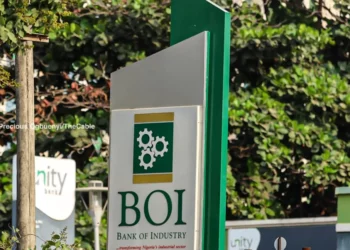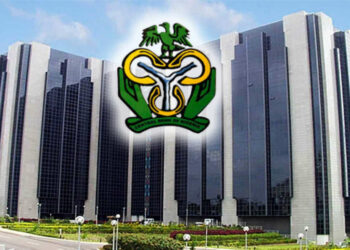The Central Bank of Nigeria (CBN) has taken decisive steps to shore up the value of the Nigerian Naira, injecting over $300 million into Deposit Money Banks (DMBs) within the past two weeks.
This move comes amidst concerted efforts to stabilize the exchange rate between the Naira and the US dollar.
According to a memo circulated by the Association of Corporate Treasurers of Nigeria (ACTN), the CBN’s intervention saw the sale of over $200 million to banks at rates below N1,500 per dollar last week.
Similarly, in the current week, the CBN has continued to bolster the market by selling foreign exchange at rates hovering around the $1,450 range.
An executive committee member of the ACTN, speaking on condition of anonymity, confirmed the authenticity of the memo, emphasizing that the information was sourced directly from the CBN.
This proactive measure aims to equip ACTN members with vital insights amid the recent turbulence in the currency market.
The surge in dollar sales follows a period of rapid depreciation for the Naira, which began the year at N891 per dollar but has since faced significant challenges in both official and parallel markets.
Notably, recent actions by the CBN and the Economic and Financial Crimes Commission (EFCC) have led to a temporary rebound in the Naira’s value, particularly in the parallel market.
At the close of trading activities on Monday, the Naira appreciated to N1,582 per dollar at the official market, representing a 0.75% increase from previous levels. However, at the parallel market, the Naira slipped slightly to between N1,555 and N1,560 per dollar, reflecting prevailing market sentiment.
The recent rise in the Naira’s value can be attributed to a combination of market sentiment and regulatory actions, including the EFCC’s crackdown on currency speculators.
Notably, the CBN has also implemented several measures aimed at stabilizing the foreign exchange market, including revisions to operations for International Money Transfer Operators (IMTOs) and the transition to electronic payouts for travel allowances.
Additionally, the federal government has announced plans to raise $10 billion to bolster liquidity in the foreign exchange market, while also taking steps to curb illicit financial activities, including the blocking of online platforms of crypto firms suspected of manipulating the forex market.
As regulatory authorities continue to address currency racketeering and promote transparency in the forex market, stakeholders remain hopeful that these measures will contribute to a more stable and resilient economic environment in Nigeria.





